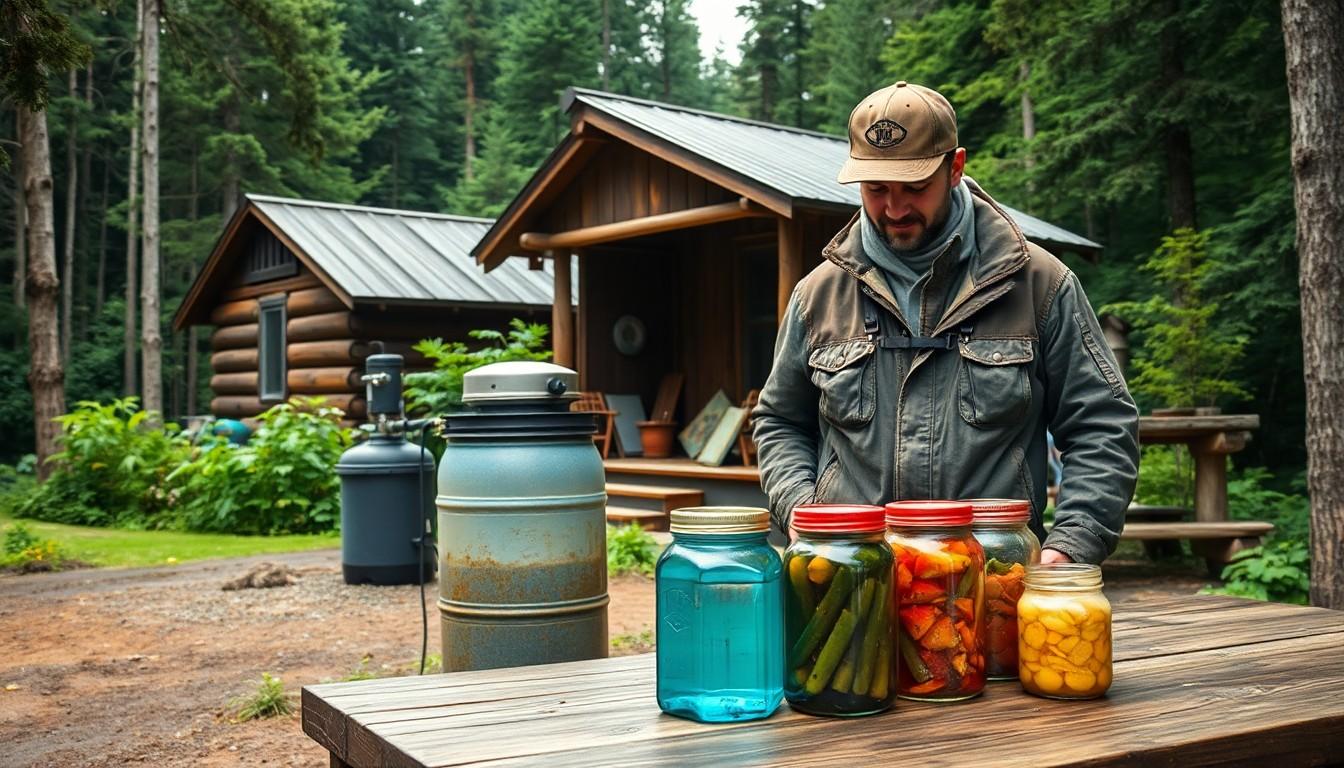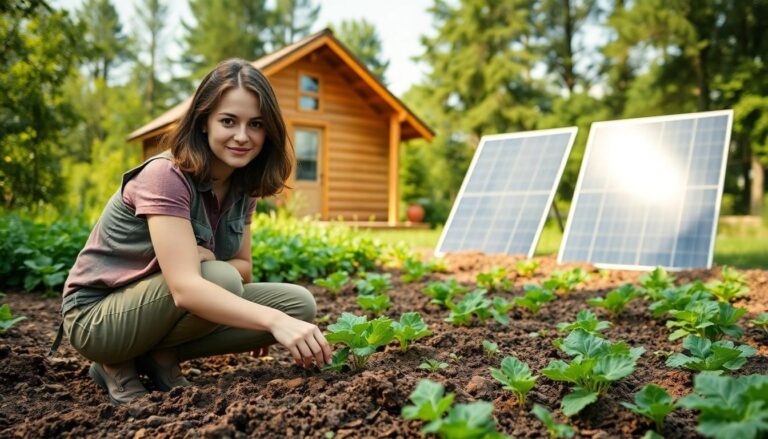Imagine waking up to the sound of chirping birds instead of blaring alarms, sipping coffee brewed over an open fire, and living life on your own terms. Off-grid living isn’t just a trend; it’s a lifestyle choice that promises freedom from the daily grind. But before someone can trade their suburban home for a cozy cabin in the woods, they need the right supplies to make it all happen.
Off Grid Living Supplies
Off-grid living represents a significant shift from urban lifestyles. Many individuals seek sustainable independence, where reliance on public utilities diminishes. Engaging with nature becomes a daily experience. This lifestyle emphasizes self-sufficiency and resourcefulness, encouraging inhabitants to grow their own food and harness renewable energy sources.
Water collection systems play a crucial role in sustaining this lifestyle. Rainwater harvesting serves as an effective method for irrigation and drinking supplies. Effective filtration ensures clean water for various needs. Additionally, energy solutions like solar power systems provide electricity, allowing for smoother daily activities.
Shelter also deserves careful consideration. Homes designed for off-grid living often utilize sustainable materials. These structures promote energy efficiency and integrate seamlessly with the environment. Many opt for tiny homes or cabins, prioritizing minimalism. This approach reduces overall living costs and environmental impact.
The choice of land impacts the success of off-grid living. Selecting a suitable location requires evaluating factors like climate, access to resources, and proximity to services. Zoning regulations can also influence the functionality of off-grid plans. Knowledge of local laws proves essential for compliance and sustainable living.
Finally, community connections enrich the off-grid experience. Many off-grid dwellers find support in like-minded individuals. They share resources, trade skills, and exchange ideas. This network fosters collaboration and makes the transition smoother.
Navigating off-grid living necessitates preparation and understanding. Knowledge of supplies and essential tools helps those committed to this lifestyle thrive. As they embrace this journey, commitment to self-sufficiency leads to greater fulfillment and a deep connection to nature.
Essential Off Grid Living Supplies

Gathering essential supplies is crucial for successful off-grid living. These items enhance self-sufficiency and comfort in a rustic environment.
Water Supply and Filtration
Collecting rainwater serves as a primary water source for off-grid dwellers. Utilizing a filtration system ensures water is safe for drinking and cooking. They often implement gravity-fed systems for simplicity and effectiveness. Storage tanks play an essential role, allowing the collection of ample water during rainy seasons. A portable water filter can provide an additional layer of safety, especially in emergencies. Regular maintenance of the filtration system and tanks is vital to ensure longevity and optimal function. Reliable access to clean water becomes a foundation for sustainable living.
Food Storage and Preservation
Store food effectively to maximize shelf life and minimize waste. Many off-grid enthusiasts use canning methods to preserve fruits, vegetables, and meats. Shelves filled with jars of home-canned goods offer a visual testament to hard work. A root cellar provides a cool environment for storing potatoes, carrots, and other produce. For those with limited space, vacuum sealers present an excellent alternative, extending the life of perishables. Dehydrators serve another purpose, transforming surplus harvests into lightweight, long-lasting food. Planning for food preservation contributes to a self-reliant lifestyle.
Shelter and Clothing
Constructing proper shelter ensures comfort and protection from the elements. Many choose to build with sustainable materials, promoting energy efficiency. Tiny homes and cabins offer a minimalist approach, optimizing available space. Insulated walls and roofs contribute to energy conservation, reducing heating needs in colder climates. Clothing designed for off-grid living should emphasize durability and comfort. Layering outfits ensures adaptability to changing weather conditions. Sourcing materials locally supports the community and enhances the off-grid experience. Prioritizing shelter and clothing enables off-grid dwellers to thrive in their chosen environment.
Energy Solutions for Off Grid Living
Energy solutions play a crucial role in off-grid living, providing the necessary power for daily activities. Effective approaches reduce dependency on traditional energy sources and promote sustainability.
Solar Power Systems
Solar power systems serve as a primary energy source for many off-grid households. They convert sunlight into electricity, making them highly efficient and eco-friendly. Components like solar panels, inverters, and batteries create a complete system that stores energy for use during non-sunny periods. Many systems come in various sizes, allowing individuals to tailor their setup based on energy needs. Regular maintenance ensures maximum performance and longevity. Local solar incentives and rebates can significantly reduce initial costs, making solar power more accessible.
Alternative Cooking Methods
Alternative cooking methods enhance the off-grid lifestyle by providing efficient ways to prepare food. Wood stoves, for instance, offer a reliable source of heat while cooking. Propane and butane stoves are lightweight and easily transportable, ideal for outdoor use. Solar ovens utilize sunlight for cooking, allowing individuals to enjoy energy-free meals. Each method comes with its unique benefits, fostering creativity in meal preparation. For those living off the grid, mastering these cooking techniques becomes part of the daily routine, enhancing self-sufficiency and resourcefulness.
Tools and Equipment for Off Grid Life
Essential tools and equipment significantly enhance the off-grid living experience. Proper selection influences efficiency and effectiveness, supporting a self-sufficient lifestyle.
Hand Tools vs. Power Tools
Hand tools serve as indispensable allies in off-grid environments. Simple implements like shovels, axes, and hand saws require no electricity and offer reliability. Many off-grid dwellers prioritize portability and ease of use, enabling them to perform tasks anywhere. Power tools, on the other hand, excel in speed and efficiency for larger projects. Electric saws and drills simplify construction but require energy sources, such as generators or solar systems. Many find a balance between the two, choosing hand tools for routine tasks while reserving power tools for significant ventures. This combination maximizes versatility and adapts to various situations.
Gardening Supplies
Gardening supplies contribute to food production and self-sufficiency. Essential items, such as seeds, soil, and compost, lay the foundation for a successful garden. Many off-grid enthusiasts opt for heirloom seeds, ensuring resilience and the ability to save seeds for future planting. Additionally, tools like trowels and hoes provide necessary support for planting and maintenance. Watering systems, including drip irrigation or rainwater collection, ensure consistent moisture for crops. Organic fertilizers and pest control methods, such as companion planting, promote healthy growth without harmful chemicals. This emphasis on sustainable practices enhances food security and fosters a more self-reliant lifestyle.




